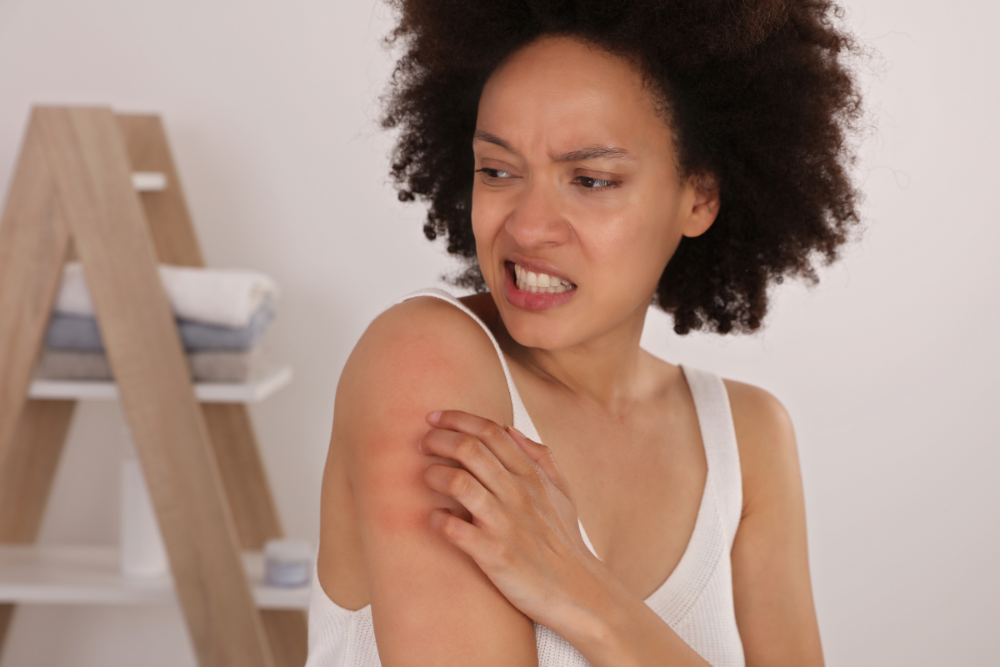After the World Health Organization (WHO) declared the monkeypox virus as a global health emergency earlier this year, news stories have continued to develop about the risks and symptoms associated with the infection – with the number of cases continuing to rise.
Research points to the initial monkeypox outbreak occurring through animal to human transmission. As with many infectious diseases of a zoonosis nature, human to human transmission of the monkeypox virus followed shortly after the first incident of infection.
Earlier this month, a trusted medical journal publication revealed the first incident of human to dog transmission, after a household animal developed monkeypox symptoms, from a close contact living situation with two infected adult males.
Human to animal transmission of monkeypox virus
Although this is the first confirmed case of human to dog monkeypox transmission, health officials are not surprised by the development. The technical lead on the monkeypox virus response team from the World Health Organization, Dr Rosamund Lewis, revealed that this form of transmission has always been a theoretical risk.
Skin to skin contact and airborne transmission have been identified as avenues to spread monkeypox virus, making human to dog transmission particularly feasible if an infected person shares the same household with an animal. The infected men let their dog sleep in their bed, with medical professionals suggesting this type of close contact may have been the cause of transmission.
Symptom onset of the infected dog, a male Italian greyhound, began 12 days after exposure, with mucosal lesions forming on the dog’s skin. The diagnosis of the animal was confirmed when anal and oral swabs tested positive for the monkeypox virus.
The dog’s symptoms started with mucocutaneous lesions, worsening with abdomen pustules and anal ulceration. Prior to when the dog developed lesions, the infected animal had no previous medical disorders.
While human to dog transmission of monkeypox is considered to be rare, evidence of the positive PCR test suggests that this is a real canine disease of a concerning nature – not simply a condition of secondary transmissions, through respiratory droplets. It is always best to air on the side of caution and is recommended that at the first signs of symptom onset, an infected person or animal should avoid close contact and seek medical advice immediately.
Due to the rare nature of this initial discovery, further investigation will need to be conducted into the potential risk factors for domesticated animals living with infected people. At this point in time, to ensure animal health and safety, family members are urged to isolate pets and avoid contact, in any case of confirmed monkeypox virus infection.
Animal to human transmission of monkeypox virus
Before the first case of human infection in 1970, it was believed that only wild animals would carry monkeypox virus in the originating continent of Africa. The main carriers of the disease were prairie dogs, non human primates and other animals, such as various rodent species.
Certain monkeypox cases of animal to human transmission can be linked to exposure of imported infected animals, owners with pet prairie dogs and any contact with visible skin and mucosal lesions.
Who is at risk of the monkeypox virus?
At the time of writing, there have been approximately 100 monkeypox cases recorded around Australia, with the virus now becoming more prevalent in non endemic countries. Although this number has risen throughout the year, all the evidence suggests that most cases can be traced back to close contact with international travellers.
Prior to this recent discovery that human to animal transmission is possible, the Centre for Disease Control and WHO outlined that certain groups of people may face a higher risk of contracting the monkeypox virus.
Through recent developments, the monkeypox virus has been classified as a sexually transmitted disease. WHO recently reported that the number of cases has dramatically increased in communities of gay, transgender, bisexual and men who have sex with other men.
Promoting positive sexual health is important for the safety and wellbeing of both you and your partner. Due to the nature of this recent outbreak, the World Health Organization has advised that gender-diverse people may have a higher risk of transmitting the infection through intimate contact.
It is important to understand that the monkeypox virus can affect people of all ages, sexual orientations, genders and race.
Do smallpox vaccines protect against a monkeypox virus infection?
While newer vaccines have been developed to protect against transmission from monkeypox virus positive individuals, evidence shows that people inoculated as a part of the smallpox eradication initiative are likely to experience less severe symptoms, if they become an infected person.
Understanding the current outbreak and state of public health emergency
It’s important to understand the symptoms and risk factors associated with monkeypox cases and any other infectious diseases. Monkeypox spreads through close contact, so practicing positive methods of hygiene, healthy living and isolating from infected people will reduce your likelihood of contracting the disease.
If you begin to feel unwell, evaluate your own symptoms and seek medical advice, is you have any of the following conditions:
-
Fever
-
Fatigue
-
Headache
-
Muscle aches
-
Swollen lymph nodes
-
Skin and mucosal lesions





